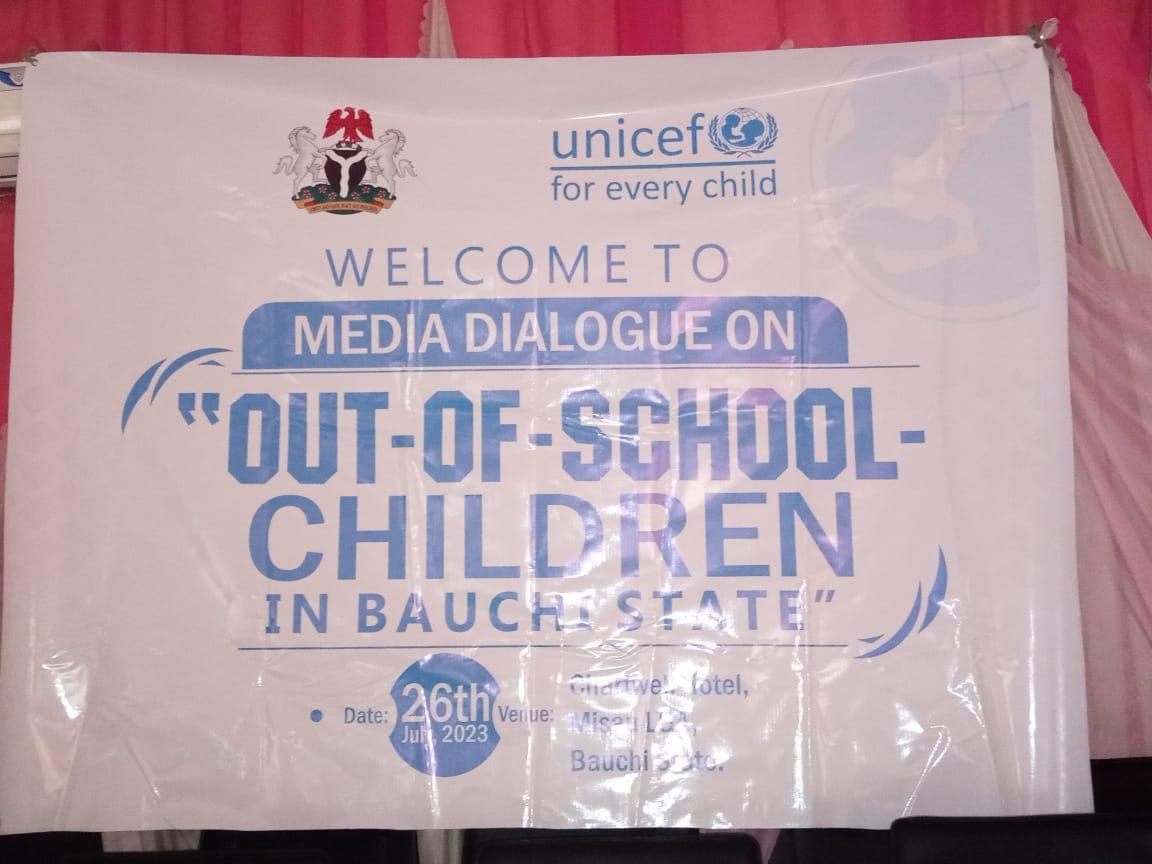… Tasks Journalists To Amplify Voices Of Out-of-school-children
The United Nations Children’s Fund (UNICEF), Bauchi Field Office, has lamented that over 10 million children who are ought to be in school in Nigeria are roaming the streets.
Dr. Tushar Rane, Chief of Field Office UNICEF Nigeria, Bauchi Field Office made the revelation on Wednesday in Misau Local Government Area of the state at a media dialogue on out-of-school children organised by the international NGO.
While calling on journalists to amplify the voices of out-of-school children in the state, he also tasked journalists to use the event to advocate for change.
He further reaffirmed UNICEF’s commitment to ensuring that no child is left behind.
READ ALSO: 2.2 Million Nigerian Children Unvaccinated — UNICEF
The UNICEF boss, who reiterated that education is a fundamental right that empowers children to reach their full potential, expressed sadness that a significant number of children in Bauchi State were unable to access this fundamental right.
“Education is a fundamental right that empowers children to reach their full potential, it is deeply concerning that, due to varying factors, a significant number of children in Bauchi state are unable to access this fundamental right, robbing them of their dreams and aspirations.”
He added: “Despite the importance of education, at least, over 10 million school-aged children in Nigeria are out of school. This is a major challenge to all of us.
“I encourage us to let the discussions from this media dialogue motivate us, to amplify the voices of out-of-school-children, advocate for change, and to reaffirm our commitment to ensuring that no child is left behind.
READ ALSO: 75% Nigerian Children Can’t Read, Solve Maths – UNICEF
“At UNICEF, we are committed to improving the lives of children and women in Nigeria, especially in achieving the Sustainable Development Goals and the Education for All goals of educating all children at all levels and in all groups,” he said.
According to him, in the 2023 UNICEF’s enrollment drive campaign, it would be engaging traditional, religious stakeholders, School Based Management Committees, and youths to ensure effective awareness and mobilization of parents, guardians, communities, on the importance of enrolling all school-age children in schools.
Also speaking, An Education Specialist, UNICEF Bauchi Field Office, Abdulrahman Ado, said that Nigeria is contributing 15 percent to the number of out-of-school children in the world and Bauchi state has the highest number of out-of-school children in the North-East.
He also said that according to the data from the Nigeria Education Data Survey report of 2018, Nigeria is unlikely to achieve SDGs 4, adding that Nigeria still maintains the enrollment figures of 1995 of 60 percent.
READ ALSO: Nine Children Died, 50 Injured In Sudan’s War – UNICEF
“In 1995, enrollment was 60 percent, 2001 was 70 percent, 2003-2005 recorded 84.
“However, there was a nose dive in 2007 to 59 percent, in 2011 to 2013, there was an improvement to 79 percent while it sharply fell in 2015-2017 to 61 percent and the recent data of 2018 is exactly what Nigeria recorded in 1995,” he said.
Ado further highlighted some of the factors contributing to the menace of out-of-school children in the country to economic recession, funding, insecurities, lack of equity, changes in national and state-level administration as well as lack of sustainability in activities when development partners withdraw.
